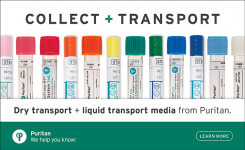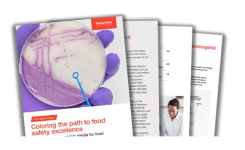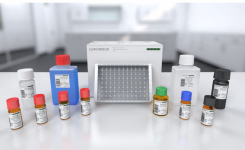| In the last year, product recalls due to Salmonella have been required for a wide range of food types, including white peppercorns in Australia (ref1), pork rinds (ref2) and chicken products (ref3) in the United States, and an international recall of raw almonds (ref4). In the UK recent product recalls for Salmonella contamination include deli-cooked lamb sold from in-store delicatessen counters in November 2004 (ref5), Dry Cured York Ham (ref5), and in January 2005 camembert cheese was recalled by a leading supermarket chain (ref6).
Although product recalls like these are rare and well managed, the incident concerning raw almonds demonstrated the devastating and far-reaching consequences of Salmonella contamination. Resulting in an outbreak of salmonellosis infection, which affected at least 25 people in the United States, the recall from the original supplier led to a further 40 company recalls and, due to the large-scale export of the product, the posting of international alerts.
By providing timely and reliable identification of Salmonella, the BAX® system allows food manufacturers and processors to minimise such occurrences. The system has been adopted by many countries as the method of choice for Salmonella detection. For example, the BAX® system has been named as an AOAC International Official Method for the detection of Salmonella (2003.09). It has also been adopted by the USDA Food Safety Inspection Service (FSIS) for the detection of Salmonella in ready-to-eat foods, raw meat and poultry (MLG 4C,00) and it has been approved by Health Canada Certification (MFLP-29), AFNOR (QUA 18/3-11/02), NordVal (NV-doc.1-2004-01-01) and the Ministry of Agriculture in Brazil.
The BAX® system detects target bacteria in raw ingredients, finished food products and environmental samples. In addition to Salmonella, assays are also available for the detection of E. coli O157:H7, Enterobacter sakazakii, Listeria and L. monocytogenes. The automated system is user-friendly and fits easily onto a laboratory bench top.
References:
1. Food Standards Australia New Zealand, 17 November 2004
2. USDA FSIS, 3 May 2004
3. USDA FSIS, 27 July 2004
4. FDA, 18 May 2004
5. Food Standards Agency, 5 November 2004
6. Food Standards Agency, 18 January 2005
|
















